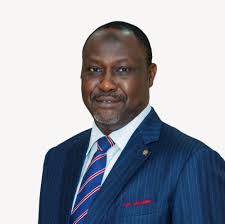Africa’s finance ministers, development experts, and private sector leaders have unveiled a decisive plan to address the continent’s soaring cost of capital within the next 12 to 36 months.
The strategy emerged from the Financing Africa Forward Summit in Johannesburg, South Africa, co-hosted by Standard Bank and Africa Practice in partnership with the ONE Campaign and the African Peer Review Mechanism. The gathering brought together influential African voices determined to reshape the continent’s financial future.
Discussions centred on the widening gap between Africa’s borrowing costs and those of the rest of the world. African countries are paying up to 500 per cent more for capital market loans than they would through Multilateral Development Banks. With external debt service expected to hit $89 billion in 2024, the flow of repayments now outweighs new financing and aid inflows.
Participants agreed on a four-pillar action plan. First, they aim to push for reforms in the global financial architecture to ensure Africa has greater influence in shaping international standards, making the system fairer. Second, governments will be encouraged to invest strategically, strengthen institutional capacity, reward innovation, and reduce dependence on borrowing. Third, they will improve the accuracy, transparency, and timeliness of African financial data, enabling better decision-making. Lastly, they intend to shift global perceptions of Africa from a destination for aid to a hub for investment through evidence-driven campaigns.
The President of the Africa Finance Corporation stressed that flawed perceptions and inflated risk assessments are costing African countries an estimated $75 billion annually in extra borrowing costs and lost revenue. The ONE Campaign’s leader described affordable capital as essential for Africa’s growth, while Standard Bank’s CEO highlighted the broader impact of investment in building resilience and prosperity. Africa Practice’s head likened the current financial imbalance to forcing African countries to climb a mountain with weighted vests, a burden that must be lifted.
Experts at the summit agreed that reform is no longer optional. They warned that if global institutions cling to outdated models, they risk losing relevance as developing nations create their own credible financing alternatives. The coalition behind the action plan intends to start rolling out reforms within the set timeline, with all initiatives tailored to Africa’s needs and long-term goals.
With the cost of capital holding back economic progress, the summit’s closing message was clear: Africa will chart its own path toward financial justice and economic sovereignty without waiting for external approval.










